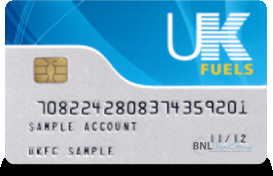The bottom line. That’s what it’s all about. In terms of managing a fleet, when it’s an integral part of your business, it is critical to be able to do it on a budget yet simultaneously try to ensure that there is no compromise on the quality of service being delivered to your customers. More than ever, in an increasingly competitive marketplace, fleet managers need to be able to have an exact idea where all the money is being spent in order to be better able to control, and ultimately reduce costs. Fuel costs in particular are notably on the increase, so just how can the cost of running a fleet be significantly reduced.
1) Journey Planning
Many fleet managers have a tendency to put most of their efforts into finding the most fuel efficient vehicles or ways to monitor and bring down the actual consumption of fuel. But, another way to be cost-effective is to be more aware of which journeys are being made that are essential and which others could actually be cut from the schedule through tools such as Skype. There is a multitude of ways in which the number of journeys made by your fleet can be brought down. This of course will have a knock-on effect on other areas that can be very pricey, including general maintenance, tyre servicing, hotel bills, meals, etc.

2) Driver Training
A SAFED study has shown that the average driver can actually reduce the consumption of fuel by a whopping 10% after they’ve followed a training course on fuel efficiency driving. With this in mind, it’s fair to say that the cost of driver training can actually pay for itself in the long-medium term and additionally there is the important addition of driver safety benefits. Accidents and incidents’ claims can consequently be reduced to as much as 50%, a great bonus for any fleet manager.
3) Tracking Devices
To get accurate data in regards to tracking journey distances and times has always been a tricky task. How many miles per gallon and how long is spent idling are just two of the questions often posed to fleet managers. The manual mapping out of every journey can be a hugely time-consuming task, not to mention the potential margins of error too. This is where various tracking devices can prove to be worth their weight in gold. Logging the routes the drivers use in real-time and the enablement of fleet managers to collect the info necessary to make detailed reports are just two benefits of these devices. The data can then easily be accessed via a variety of platforms.
4) Fuel Cards

In a similar way to credit cards, fuel cards can be a very effective way of not only managing fuel spend but also minimising admin time and costings. Used by large and small companies alike, payment processing time is cut down and also the convenience in how your drivers pay for their fuel is evident. Security is always high on the list of priorities for fleet managers; fuel cards bring the added bonus of a secure and easy to use way to operate your fleet’s fuel consumption spending.
This blog post was brought you by UK Fuel Cards, checkout their regular blog and news pages. These are a great resource to keep up-to-date on all the goings-on in the vibrant world of automobiles and fleet management.

